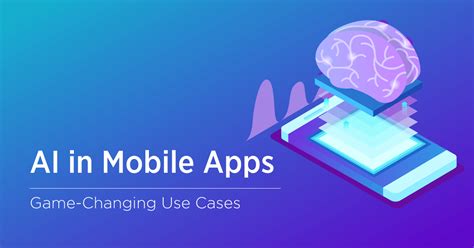Breaking News


Popular News


Discover how mobile gaming is pushing the boundaries of technology with AR, AI, blockchain, cloud computing, VR, and 5G advancements.In recent years, the mobile gaming industry has become a major force driving innovation in technology. With advancements in augmented reality (AR), artificial intelligence (AI), blockchain, cloud computing, virtual reality (VR), and 5G, mobile gaming has influenced and shaped the development of these technologies. This blog post will explore the impact of mobile gaming on these areas of technology, including the ways in which it has propelled the development and integration of AR, AI, blockchain, cloud computing, VR, and 5G. From enhanced gaming experiences to real-world applications, mobile gaming’s influence is evident in the innovations and advancements we see in technology today. Follow along as we delve into how mobile gaming has become a catalyst for technological progress and how it continues to push the boundaries of what is possible in the tech industry. Join us as we explore how mobile gaming is driving innovation in technology.
Contents

Mobile Gaming’s Impact on AR Development
Mobile gaming has had a significant impact on the development of augmented reality (AR) technology. With the increasing popularity of mobile games, developers have been exploring new ways to integrate AR features into their games to provide a more immersive and interactive experience for players. This has led to the advancement of AR technology, as game developers seek to push the boundaries of what is possible in mobile gaming.
The integration of AR in mobile games has also driven innovation in the gaming industry as a whole, as developers have been forced to find new and creative ways to incorporate AR features into their games. This has led to the development of new technologies and tools that have the potential to revolutionize the way we interact with mobile games, and AR technology in general.
Furthermore, the success of AR-enabled mobile games has also led to increased interest and investment in AR technology, with many companies looking to capitalize on the growing popularity of AR gaming. This has resulted in a surge of new AR development projects, as well as the emergence of new AR technology companies, all aiming to push the boundaries of what is possible with AR technology.
| Impact of Mobile Gaming on AR Development |
|---|
| Increased popularity of AR technology |
| Pushing boundaries of AR technology in gaming |
| Increased interest and investment in AR development |

The integration of AI in mobile gaming has revolutionized the way we play and experience games on our smartphones and tablets. With advancements in artificial intelligence technology, game developers are able to create more immersive and interactive experiences for players. AI algorithms are being used to improve game mechanics, create more realistic characters, and enhance the overall gaming environment. This has led to a new era of mobile gaming that not only entertains but also challenges players in ways we have never seen before.
Furthermore, the integration of AI has opened up a whole new world of possibilities for mobile game developers. With the use of machine learning and neural networks, games are able to adapt and learn from the player’s behavior, providing a more personalized and dynamic gaming experience. This level of customization and learning has redefined the way we engage with mobile games, making them more addictive and engaging than ever before.
Moreover, AI has also been instrumental in enhancing the visual and audio aspects of mobile gaming. Through the use of AI-powered algorithms, games are able to deliver stunning graphics and lifelike sound effects that rival those found in console and PC games. This level of realism has brought mobile gaming to a whole new level, blurring the lines between traditional gaming platforms and mobile devices.
In conclusion, the integration of AI in mobile gaming has not only driven innovation in technology, but has also transformed the way we play and experience games on our mobile devices. As AI technology continues to advance, we can expect to see even more groundbreaking developments in mobile gaming, further pushing the boundaries of what is possible in the world of mobile entertainment.

Blockchain technology is revolutionizing the world of mobile gaming, offering a decentralized and secure environment for gamers. The integration of blockchain in mobile games has opened up new possibilities for gamers to truly own their in-game assets and trade them with other players. This has led to the rise of blockchain-based gaming platforms where players can earn cryptocurrencies through gameplay and participate in decentralized gaming economies.
Furthermore, the use of blockchain in mobile games has also addressed issues related to cheating and fraud, as the technology ensures transparency and immutability of game data. This has resulted in a more trustworthy gaming experience for players, as they can be confident in the fairness and security of the games they play. The implementation of blockchain technology has the potential to disrupt the traditional gaming industry, providing a new level of transparency and ownership for gamers.
With the immersive nature of mobile gaming and the growing popularity of blockchain technology, the combination of the two is driving innovation in the gaming industry. Game developers are exploring the potential of blockchain for creating unique gaming experiences and unlocking new monetization models. This has led to the emergence of blockchain-based mobile games that offer players a level of control and ownership that was previously unimaginable in the gaming world.
| Benefits of Blockchain in Mobile Games | Challenges of Implementing Blockchain in Mobile Games |
|---|---|
|
|
Overall, the integration of blockchain technology in mobile games has the potential to transform the gaming landscape, offering new opportunities for players and developers alike. As the technology continues to mature, we can expect to see a proliferation of blockchain-based mobile games that redefine the way we play and interact with games on our mobile devices.

Mobile gaming has been at the forefront of driving innovation in technology, and one area where its influence is greatly felt is in cloud computing. Cloud computing involves the delivery of computing services, including servers, storage, databases, networking, software, and analytics, over the internet. The massive scale and unpredictability of mobile gaming have pushed cloud computing to evolve and provide the infrastructure needed to support the demands of modern gaming.
With the rise of mobile gaming, the need for scalable and reliable cloud services has become a priority. As mobile games continue to grow in complexity and fidelity, game developers are increasingly relying on cloud-based solutions for tasks such as multiplayer functionality, game analytics, and content delivery. Cloud computing allows for seamless synchronization of game data across multiple devices, enabling players to pick up where they left off no matter where they are or what device they are using. This has revolutionized the gaming experience and opened up new possibilities for game design and engagement.
Furthermore, cloud computing has enabled mobile games to leverage the power of remote servers for rendering and processing tasks. This has allowed for more graphically intense games to be played on lower-end devices, as the heavy lifting is offloaded to the cloud. Additionally, cloud-based gaming services have made it possible for players to access high-quality games without the need for expensive gaming hardware, further democratizing the gaming experience.
| Impact of mobile gaming on cloud computing | Examples |
|---|---|
| Increased demand for scalable and reliable cloud services | Multiplayer functionality, game analytics, and content delivery |
| Seamless synchronization of game data across multiple devices | Allows players to pick up where they left off regardless of device |
| Offloading rendering and processing tasks to remote servers | Enabling graphically intense games on lower-end devices |
In conclusion, the impact of mobile gaming on cloud computing has been profound, driving the demand for more scalable and reliable cloud services while opening up new possibilities for game design and player engagement. As the mobile gaming industry continues to evolve, we can expect to see further advancements in cloud computing that will further enhance the gaming experience for players around the world.
The advancements in virtual reality (VR) technology have significantly impacted the landscape of mobile gaming. The use of VR technology in mobile gaming has revolutionized the way users interact with and experience games on their mobile devices. With the integration of VR technology, mobile games are now able to provide users with an immersive and realistic gaming experience that was previously only possible on traditional gaming platforms. This has opened up new possibilities for game developers to create innovative and engaging games that take advantage of VR technology.
In addition to enhancing the overall gaming experience, the integration of VR technology in mobile gaming has also driven innovation in mobile device technology. The demand for more powerful mobile devices that are capable of supporting VR technology has led to advancements in mobile hardware, including faster processors, higher resolution displays, and improved graphics capabilities. These advancements have not only improved the gaming experience for mobile users, but have also had a positive impact on the overall development of mobile technology.
Furthermore, the integration of VR technology in mobile gaming has also opened up new opportunities for game developers to explore new ways of engaging and interacting with users. The ability to create more immersive and interactive gaming experiences has allowed developers to push the boundaries of what is possible in mobile gaming, leading to the development of new and innovative gameplay mechanics and features.
| Key Advancements in VR Technology |
|---|
| 1. Immersive Gaming Experiences |
| 2. Enhanced Graphics and Visual Effects |
| 3. Integration of Motion Controls |
| 4. Interactive Gameplay Features |

Mobile gaming has been at the forefront of driving innovation in technology, particularly in the advancement of 5G technology. With the increasing demand for high-speed connectivity and low latency, 5G technology has become a crucial component in the mobile gaming industry. The integration of 5G networks has allowed for faster download speeds, seamless multiplayer gaming, and enhanced virtual reality experiences on mobile devices.
Furthermore, mobile gaming has played a significant role in pushing for the development and implementation of 5G technology. Game developers have been leveraging the capabilities of 5G networks to create more immersive and interactive gaming experiences for users. The ultra-low latency and high bandwidth of 5G networks have paved the way for cloud gaming, allowing players to stream high-quality games directly to their mobile devices without the need for expensive hardware.
In addition, the advancements in 5G technology have also opened up new opportunities for augmented reality (AR) and mixed reality (MR) gaming on mobile devices. The high-speed, low-latency connectivity provided by 5G networks has enabled seamless integration of AR features into mobile games, delivering a more immersive and interactive gaming experience for players.
As 5G technology continues to evolve and expand, mobile gaming is poised to further drive innovation and push the boundaries of what is possible in the gaming industry. The integration of 5G networks has not only enhanced the overall gaming experience but has also paved the way for new creative possibilities in game design and interactive storytelling.

What are some examples of how mobile gaming is driving innovation in technology?
Mobile gaming has helped fuel advancements in augmented reality technology, mobile hardware, and game streaming services. For example, games like Pokemon Go popularized AR technology and pushed companies to invest in developing AR capabilities for smartphones.
How has mobile gaming impacted the development of mobile hardware?
Mobile gaming has driven the development of faster processors, improved graphics capabilities, and more efficient battery usage, as gaming demands high performance from mobile devices. Manufacturers have been motivated to create smartphones with better gaming performance and features to attract gamers.
What is the role of mobile gaming in the rise of cloud gaming and game streaming services?
The popularity of mobile gaming has contributed to the growth of cloud gaming and game streaming services. With powerful gaming experiences available on mobile devices, users have become more open to the idea of streaming games over the internet, leading to the rise of platforms like Google Stadia and Microsoft xCloud.
How has mobile gaming influenced the development of mobile operating systems?
Mobile gaming has influenced the optimization of mobile operating systems for gaming performance. Both iOS and Android have introduced gaming-centric features and optimizations, such as Apple’s
In what ways has mobile gaming contributed to the advancement of augmented reality (AR) technology?
Mobile gaming has driven the adoption and advancement of AR technology. Games like Pokemon Go and Harry Potter: Wizards Unite have introduced AR experiences to a global audience, leading to further development and integration of AR features in mobile devices and applications.
How has mobile gaming impacted the design and development of gaming accessories for mobile devices?
The popularity of mobile gaming has resulted in the creation of various gaming accessories for mobile devices, such as Bluetooth controllers, cooling docks, and gaming triggers. These accessories enhance the gaming experience on smartphones and tablets, catering to the needs of mobile gamers.
What are some potential future trends in technology that may be influenced by mobile gaming?
Mobile gaming is likely to drive advancements in wearable technology for gaming, such as AR glasses and smartwatches with gaming capabilities. Additionally, the integration of 5G technology and cloud gaming could further enhance the mobile gaming experience and influence the development of future technology.